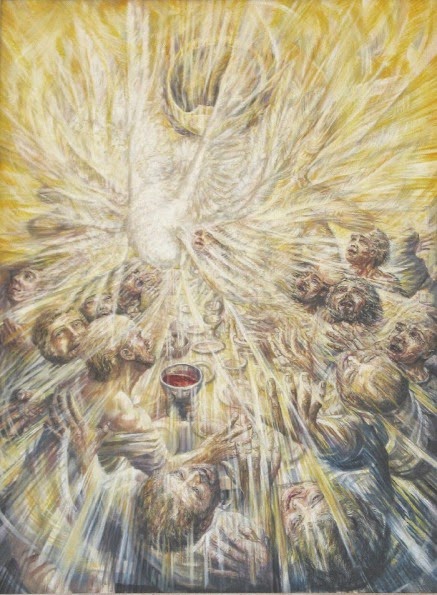 |
| Iain McKillop- Guildford Cathedral, England |
We have finished another Easter Cycle, ending with Pentecost. Now what?
We need to remember how the Apostles and disciples were after the Holy Spirit came upon them.
After Pentecost, they were different people. No longer did they flee like sheep without a shepherd. Instead, they set out to tell the world about Jesus. They understood what their true calling was and how they were to live.
We call this time after Pentecost, ORDINARY TIME (which for most of us mortals is not ordinary). It is to differentiate the periods of Advent, Christmas, Epiphany, Lent, the Great Triduum, and the Easter season ending on Pentecost from the rest of the year. These great seasons are called extraordinary time.
Extraordinary time is so designated because its chief purpose is to celebrate the specific historic, supernatural acts of God in history that result in our salvation. So now rather than moving from season to season, in Ordinary Time we move simply from Sunday to Sunday.
We still have plenty of feasts (Trinity Sunday, Corpus Christi and Sacred Heart coming up) and perhaps more emphasis on the many saints we commemorate, who lived lives following in the footsteps of Jesus.
 |
| Kathleen Atkins Wilson-USA |
The rhythm of the liturgical seasons reflects the rhythm of life, with its celebrations of anniversaries and its seasons, so now Sunday by Sunday, the Church marks her journey through the year as she processes through time toward eternity. Ordinary Time, with its emphasis on daily living in the world, is a great opportunity for us to live un-ordinary lives!